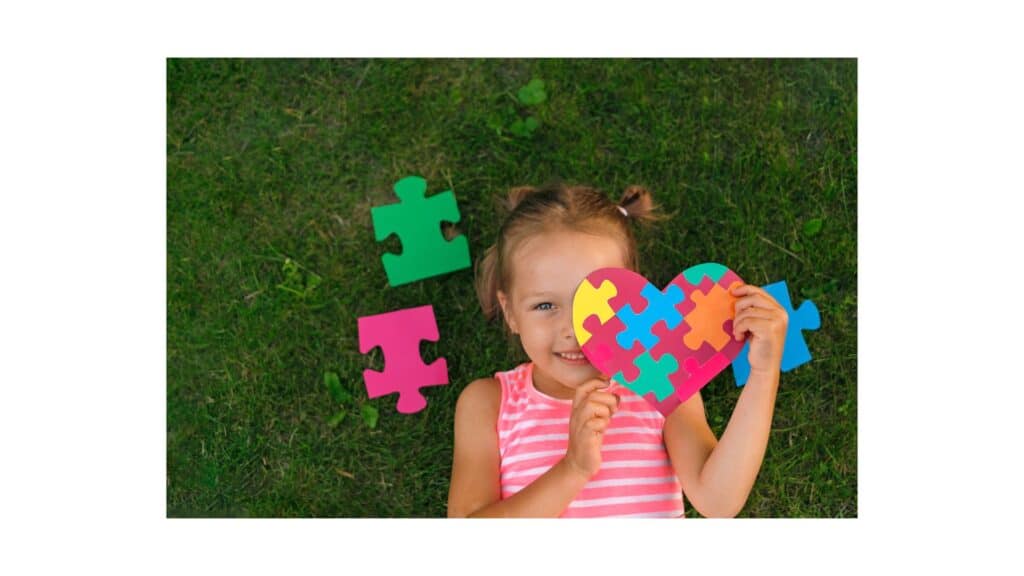Navigating the world with autism spectrum disorder (ASD) can present unique challenges, particularly in social interactions. However, with the right strategies and support, individuals with ASD can thrive socially. Applied Behavior Analysis (ABA) offers a comprehensive approach to fostering social growth in individuals with ASD. From understanding social cues to developing meaningful connections, ABA strategies provide a structured framework for building essential social skills. In this blog series, we’ll delve into various ABA strategies tailored to promote social development in individuals with ASD. Whether you’re a parent, caregiver, or educator, exploring these strategies can offer valuable insights into nurturing social growth and enhancing the quality of life for individuals with ASD.
Understanding Social Communication Challenges
Individuals with ASD often encounter difficulties in interpreting nonverbal cues, understanding social norms, and engaging in reciprocal conversations. These challenges can lead to feelings of isolation and frustration. It’s essential to recognize that social communication deficits vary widely among individuals with ASD, ranging from mild to severe. Some may struggle with maintaining eye contact, while others may find it challenging to initiate or sustain conversations. By understanding the specific social communication challenges faced by individuals with ASD, caregivers, educators, and therapists can tailor interventions to address their unique needs effectively.
Building Foundations: Early Intervention Approaches
Early intervention is the cornerstone of supporting individuals with Autism Spectrum Disorder (ASD) in their social development journey. By starting interventions during the early developmental stages, professionals can maximize the effectiveness of strategies and lay a solid foundation for future growth. Here are some key aspects of early intervention approaches:
- Capitalizing on Neuroplasticity: Early interventions leverage the brain’s neuroplasticity, allowing for more significant strides in social development.
- Fostering Fundamental Skills: Interventions focus on nurturing essential skills such as joint attention, imitation, and turn-taking, providing the building blocks for social interaction.
- Structured Activities: Through structured activities and play-based interventions, children with ASD can engage with others in a supportive environment conducive to learning.
- Individualized Support: Early intervention approaches offer individualized support tailored to the unique needs of each child, ensuring targeted and effective interventions.
- Long-Term Benefits: Investing in early intervention yields long-term benefits, setting the stage for improved social skills and enhanced quality of life for individuals with ASD.
Early intervention lays the groundwork for social development in individuals with ASD, providing tailored support and opportunities for growth from an early age. By capitalizing on neuroplasticity, fostering fundamental skills, and offering individualized support, early intervention approaches pave the way for meaningful progress and long-term success in social interactions.
Targeting Social Skills: ABA Assessment Methods
Applied Behavior Analysis (ABA) utilizes various assessment methods to identify specific social skills deficits in individuals with ASD. These assessments may include direct observations, structured interviews, and standardized assessments tailored to measure social functioning. By pinpointing areas of strength and areas needing improvement, ABA practitioners can develop targeted intervention plans that address the individual’s unique needs. Assessments may also involve gathering information from multiple sources, including parents, teachers, and the individual themselves, to gain a comprehensive understanding of their social abilities and challenges.
Structured Learning Environments: ABA Classroom Strategies
Creating a structured learning environment is essential for individuals with ASD to thrive academically and socially. ABA classroom strategies focus on establishing clear routines, visual supports, and individualized instruction to promote engagement and learning. Visual schedules, behavior charts, and designated sensory areas are commonly used to provide structure and support within the classroom setting. Additionally, teachers implement evidence-based teaching strategies such as discrete trial training and task analysis to break down complex social skills into manageable steps, facilitating learning and skill acquisition for students with ASD.
Promoting Peer Interactions: Socialization Techniques
Promoting peer interactions is a cornerstone of socialization techniques for individuals with Autism Spectrum Disorder (ASD). By facilitating meaningful engagement with peers, individuals with ASD can develop crucial social skills and forge lasting connections. Here are five effective strategies for promoting peer interactions:
- Structured Play Activities: Implementing structured play sessions with peers allows individuals with ASD to practice social skills in a controlled environment.
- Cooperative Games: Encouraging participation in cooperative games fosters teamwork, communication, and problem-solving skills among peers.
- Group Projects: Collaborating on group projects provides opportunities for individuals with ASD to work together, share ideas, and learn from one another.
- Role-playing: Engaging in role-playing scenarios helps individuals with ASD practice social interactions and develop empathy towards their peers.
- Social Scripts: Providing individuals with ASD with social scripts or prompts can assist them in initiating and maintaining conversations with peers.
By incorporating these techniques into socialization activities, individuals with ASD can enhance their social competence and build meaningful relationships with their peers, ultimately enriching their overall quality of life.
Generalization and Maintenance of Social Skills
Generalization and maintenance of social skills are critical aspects of ABA interventions for individuals with ASD. Generalization involves transferring learned skills from one setting to another, while maintenance ensures that acquired skills are retained over time. ABA practitioners use various strategies to promote generalization and maintenance, including incorporating real-life situations into therapy sessions, providing opportunities for practice in naturalistic settings, and teaching self-monitoring and self-management skills. By reinforcing social skills across different contexts and monitoring progress over time, individuals with ASD can achieve long-term success in their social development.
Collaborating with Families: Extending ABA Strategies Beyond the Session
Collaborating with families is essential for maximizing the effectiveness of Applied Behavior Analysis (ABA) strategies and ensuring consistency in skill development for individuals with Autism Spectrum Disorder (ASD). By involving families in the therapeutic process, practitioners can extend ABA strategies beyond the session, creating a supportive environment for skill generalization and maintenance.
- Tailored Treatment Plans: ABA practitioners work closely with families to develop individualized treatment plans that address the unique needs of their loved ones with ASD.
- Training and Education: Families receive training and education on implementing ABA strategies at home, empowering them to support skill development outside of therapy sessions.
- Consistency and Continuity: Collaborating with families ensures consistency and continuity of support across settings, reinforcing learned skills and promoting generalization.
- Reinforcement and Feedback: Families play a crucial role in providing reinforcement for desired behaviors and offering feedback on progress, enhancing the effectiveness of ABA interventions.
- Empowering Partnerships: Through ongoing collaboration, families become empowered partners in promoting the social growth and development of individuals with ASD, fostering a positive and nurturing environment for their loved ones to thrive.
Collaborating with families is a cornerstone of effective ABA therapy, extending the impact of interventions beyond the therapy session and creating a supportive ecosystem for skill development and social growth in individuals with ASD. By working together, practitioners and families can empower individuals with ASD to reach their full potential and lead fulfilling lives.
Conclusion
Navigating the complexities of social communication challenges in individuals with Autism Spectrum Disorder (ASD) requires a multifaceted approach. From understanding the nuances of their social deficits to implementing effective interventions, Positive Solutions Behavior Group LLC is committed to supporting individuals with ASD and their families on their journey towards social growth and development. With a focus on early intervention, targeted assessment methods, structured learning environments, and collaboration with families, we strive to empower individuals with ASD to build meaningful connections and lead fulfilling lives. Mason, OH to learn more about how we can support you and your loved ones. Let’s work together to unlock the potential for positive change and create a brighter future for individuals with ASD.






